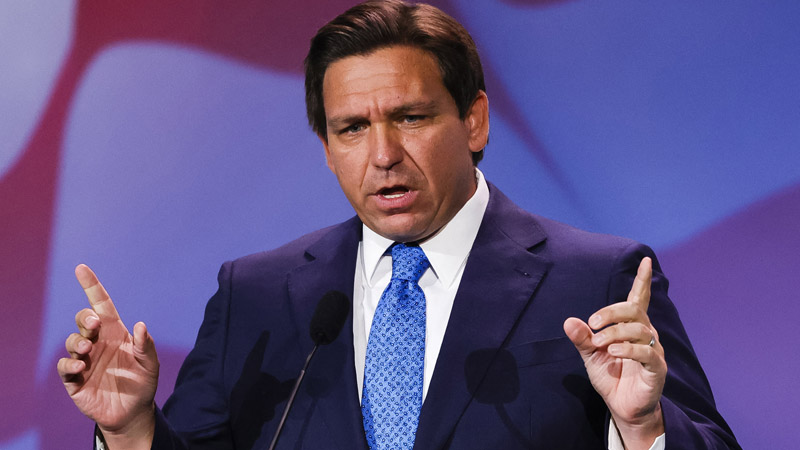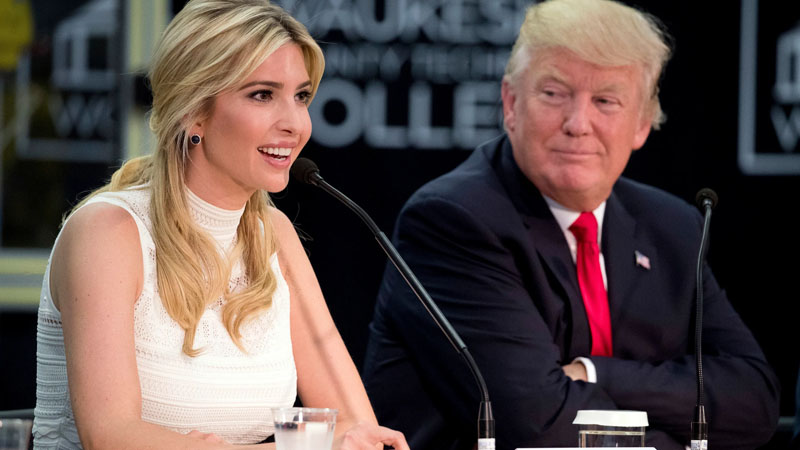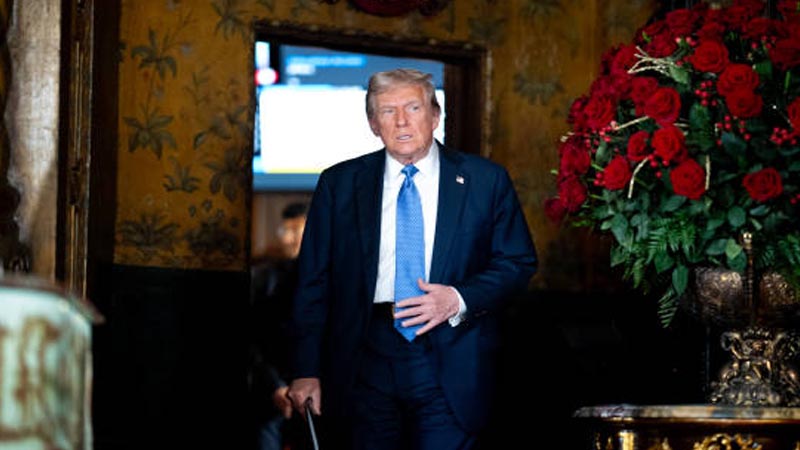“Threats Against Broadcast Stations Are Dangerous,” FCC Chair Responds to DeSantis Administration

Wade Vandervort/AFP via Getty Images
The Federal Communications Commission (FCC) targeted Governor Ron DeSantis (R-Fla.) on Tuesday over his administration’s threats to criminally prosecute Florida television stations if they continue airing a political advertisement supporting a ballot measure to expand abortion access in the state.
“The right of broadcasters to speak freely is rooted in the First Amendment,” stated FCC Chairwoman Jessica Rosenworcel. “Threats against broadcast stations for airing content that conflicts with the government’s views are dangerous and undermine the fundamental principle of free speech.”
This statement follows a cease-and-desist letter issued by the Florida Department of Health to TV stations last week. The controversy centers on a political advertisement that features a woman diagnosed with brain cancer two years ago while pregnant with her second child. According to the Miami Herald, the woman in the ad claims that Florida’s six-week abortion ban would have prevented her from receiving a life-saving abortion.
Despite the state’s warning, the advertisement remains on air nearly a week later. In response, attorneys for a political action committee (PAC) sponsoring the abortion ballot measure issued their own legal letter, describing the DeSantis administration’s threats as an “unconstitutional state action,” according to the Miami Herald.
John Wilson, general counsel for the Florida Department of Health, warned TV stations that if they did not pull the advertisement within 24 hours, they could face criminal charges. He cited a state law that classifies “creating, keeping, or maintaining a nuisance injurious to health” as a second-degree misdemeanor.
Rosenworcel, in her statement aimed at Florida officials, reaffirmed the FCC’s commitment to protecting broadcasters’ rights. She referenced a similar stance she took following a presidential debate in September when she rejected calls by former President Trump to revoke ABC’s license.
The clash highlights the escalating tension between state authorities and broadcast media over politically sensitive content. The FCC’s intervention emphasizes the importance of protecting media freedoms, particularly when government actions threaten to infringe on the constitutional rights of broadcasters.


